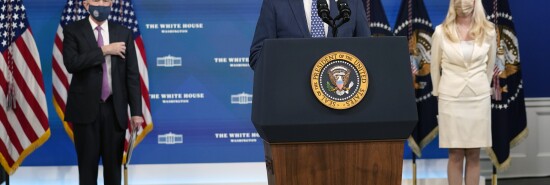
The Fed’s preferred inflation measures are back on the rise
Tiana Lowe Doescher
Video Embed
After finally declining in June, giving the Federal Reserve hopes of pulling off a soft landing at last, one of the central bank’s preferred inflation measures was back on a precipitous rise in July. Headline PCE inflation rose by 3.3% in the year ending in July, up from 3% in June. For the first time since January, core PCE inflation, perhaps the most important inflation measure for the Fed, increased to 4.2%, more than twice the Fed’s maximum target of just 2% inflation on an annual basis.
Dig into the details, and the data only becomes more disappointing. Core services sans housing, a favored inflation measure of both the Fed and the White House, accelerated to a staggering 4.7% in the 12 months ending in July, up from 4.1%. This defies the claim of Raphael Bostic of the Atlanta Fed that “stubborn (and lagging) housing services prices” are solely responsible for core inflation not falling to the Fed’s benchmark.
MARK MEADOWS COURT HEARING IS FIRST BIG TEST FOR FANI WILLIS’S TRUMP RICO CASE
Whether or not the Fed passes at least one rate hike by its November meeting is now a dead heat, according to futures markets. The misguided assumption that the Fed would start cutting interest rates by March of last year has been priced out of futures markets, finally and stubbornly following Fed Chairman Jerome Powell’s guidance that rates will stay higher for longer than investors expected even just last month.
CLICK HERE TO READ MORE FROM THE WASHINGTON EXAMINER
Unlike the triumphant times of Paul Volcker, today’s Fed chairman is actively working against the president, not in tandem with him. Contrary to the fiscal tightening of Ronald Reagan, Joe Biden’s relentless pursuit of inflationary fiscal policy is forcing the Fed to work twice as hard to achieve half as much. The result? Next year, net interest payments servicing our skyrocketing national debt will outpace the amount the government spends on Medicaid, the Supplemental Nutrition Assistance Program, and Supplemental Security Income combined. By 2027, interest payments will comprise more federal outlays than defense, and by the end of the decade, interest payments will comprise an all-time record share of our annual economic output, 3.2%.
With inflation prints like these, the timeline will only accelerate.
